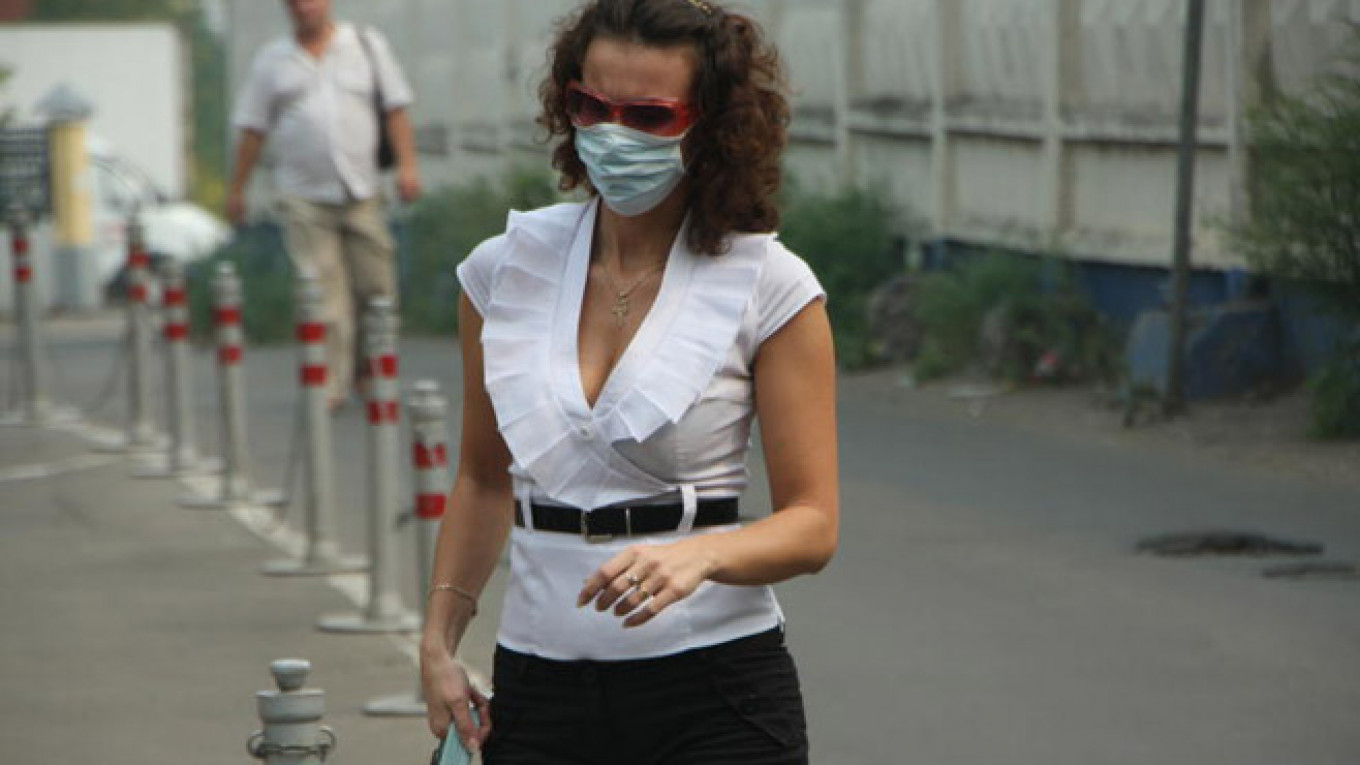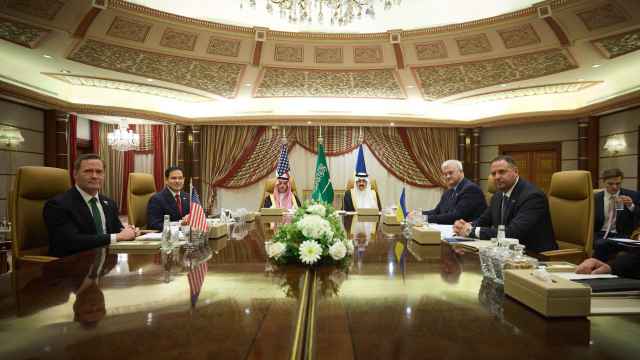Smoke from forest fires was recorded in northwest Moscow, Rossia-24 reported Wednesday, prompting fears of a repeat of the burning peat smog that enveloped the city in 2010.
Another television channel, Rossia, showed footage of heavy fog at Sheremetyevo Airport on Wednesday morning, while social networks were buzzing with eyewitness accounts.
"Looks like peat bogs are on fire. There is a burning smell and smog over the town," wrote Twitter user Dasha Gornostayeva from the town of Dubna in the Moscow region, about 125 kilometers north of the capital. Many users complained that they had had to close the windows in their homes because of the smoke, despite the stifling heat.
The Emergency Situations Ministry told ITAR-Tass that 12 fires had been registered in the Moscow region in the last 24 hours, covering a total area of 4.74 hectares, but that they had quickly been extinguished and that none of the blazes were peat fires.
The ministry said the smoke could have come from peatlands in the neighboring Tver region. Earlier the ministry predicted summer fires as a result of spring coming early to central Russia, meaning the ground would be drier than usual.
"If the weather does not change and the ministry and other bodies do not come to their senses over this situation, a repetition of the deadly summer of 2010 is inevitable," ecologist Yevgeny Usov wrote in a blog post published on Greenpeace's website. He accused officials of ignoring advice on preventing peat fires given by Greenpeace at a recent meeting with the Presidential Council on Human Rights.
The summer of 2010 was the hottest in decades, breaking several records for Russia. Smog and the smell of burning peatlands pervaded Moscow and the Moscow region for several weeks, leading to a doubling of the natural mortality rate.
See also:
A Message from The Moscow Times:
Dear readers,
We are facing unprecedented challenges. Russia's Prosecutor General's Office has designated The Moscow Times as an "undesirable" organization, criminalizing our work and putting our staff at risk of prosecution. This follows our earlier unjust labeling as a "foreign agent."
These actions are direct attempts to silence independent journalism in Russia. The authorities claim our work "discredits the decisions of the Russian leadership." We see things differently: we strive to provide accurate, unbiased reporting on Russia.
We, the journalists of The Moscow Times, refuse to be silenced. But to continue our work, we need your help.
Your support, no matter how small, makes a world of difference. If you can, please support us monthly starting from just $2. It's quick to set up, and every contribution makes a significant impact.
By supporting The Moscow Times, you're defending open, independent journalism in the face of repression. Thank you for standing with us.
Remind me later.






